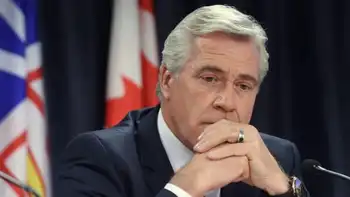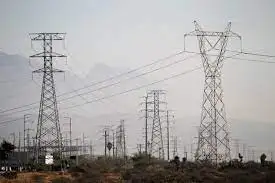Project looks to put 300 EVs on the road
TORONTO, ONTARIO - Fleet operators in the GTA are being asked to join a project that aims to put at least 300 electric vehicles on Toronto-area roads by 2012.
The Toronto Atmospheric Fund, a city agency that funds projects that reduce air pollution and greenhouse-gas emissions, is spearheading the EV300 Initiative and has signed up several public-sector partners, including Toronto Hydro, Hydro One, the Ministry of Transportation and the Ontario Power Authority.
Ben Marans, the agency's manager of special projects, said the next step is to recruit private-sector companies willing to purchase at least one plug-in vehicle for their fleet. Once the 300-vehicle commitment has been met, car makers will be approached with a bulk order they're more likely to take seriously.
"Demand far outweighs supply for these vehicles, that's why we're looking at pooling these purchases," said Marans, who's hoping to have the buyer's club in place by July 1, when provincial incentives for electric-car purchases are expected to become available.
"We're inviting all fleet managers to participate, whether they're interested in one vehicle or 20 vehicles."
Hydro-Québec announced that it plans to buy 50 electric cars from Mitsubishi Motor Sales of Canada Inc. under a $4.5 million pilot project to be launched in Boucherville this fall. "It will allow us to advance our knowledge of the technology and its integration into our grid," said Thierry Vandal, the utility's CEO.
Marans said the EV300 Initiative is not only much larger than the Hydro-Québec project, but the participation of dozens of fleet operators from the private- and public-sector makes the GTA project unique in North America. He said fleet partners get to choose the vehicles they want to purchase and the program will be designed to encourage sharing of information.
He said the agency expects to reach out to car-rental and auto-share companies, which offer an indirect way to include the public in the program.
All cars in the project will be monitored for driver habits, charging infrastructure requirements and performance under winter and summer driving conditions.
Some of the cars will be clustered in specific areas to get a sense of charging patterns and how several vehicles charging at the same time can impact the electricity grid, said Marans.
"It allows us to do scenario modeling, such as what happens when there are 3,000 vehicles in the city? What happens when it becomes 30,000 vehicles?"
A working group will explore the permitting of electric vehicles and creating non-cash incentives such as prioritized parking. It will also forecast how Toronto's streets might look like in the future and what needs to be done to prepare.
Related News

Feds "changing goalposts" with 2035 net-zero electricity grid target: Sask. premier
REGINA - Saskatchewan’s premier said the federal government is “changing goalposts” with its proposed target for a net-zero electricity grid.
“We were looking at a net-zero plan in Saskatchewan and across Canada by the year 2050. That’s now been bumped to 2035. Well there are provinces that quite frankly aren’t going to achieve those types of targets by 2035,” Premier Scott Moe said Wednesday.
Ottawa proposed the Clean Electricity Regulations – formerly the Clean Electricity Standard – as part of its target for Canada to transition to net-zero emissions by 2050.
The regulations would help the country progress towards an updated proposed goal…




